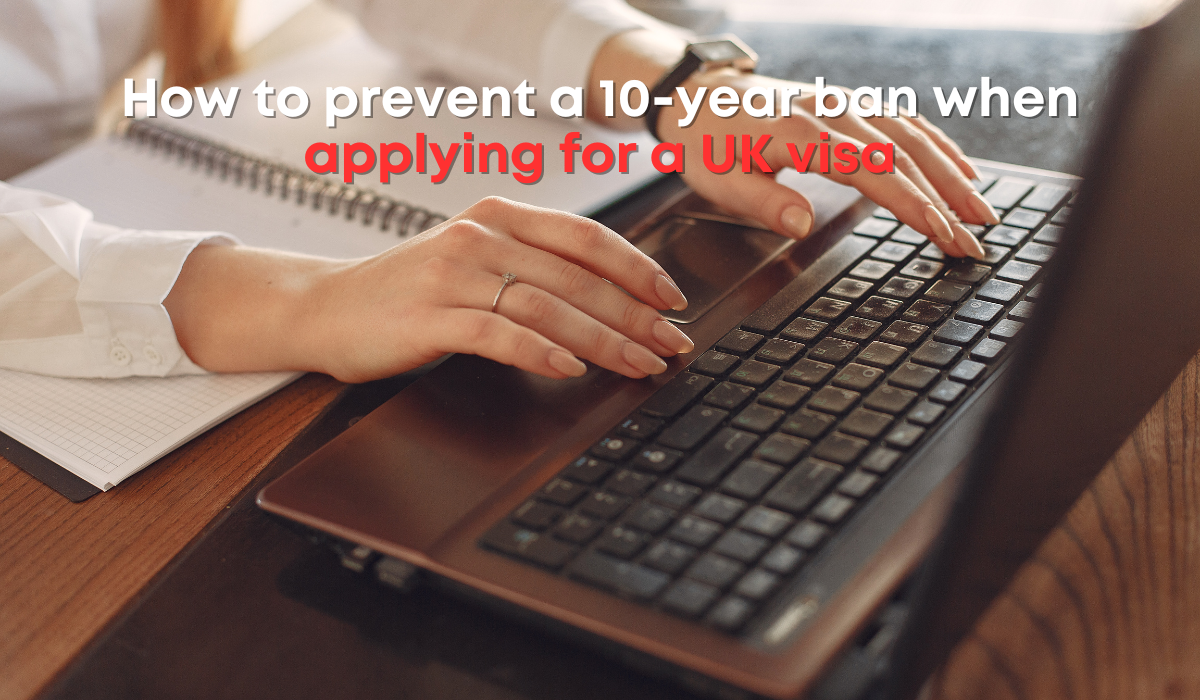Immigration applications are complex, requiring precise accuracy and thoroughness in every detail. However, when a mistake occurs—whether deliberate or unintentional—the consequences can be severe, sometimes resulting in a refusal and even a 10-year ban from re-entering the UK. Recent rulings and amendments to the UK immigration rules, specifically regarding the use of false documents or deception, highlight the need for careful attention to the application process.
UK Immigration Rules on Deception
The immigration rules make clear distinctions between submitting false documents and engaging in outright deception. These distinctions are essential, as both scenarios could lead to an application’s refusal. Paragraphs 9.7.1 to 9.8.7 of Part 9 of the immigration rules govern cases of false representation, providing guidance on how officials should handle situations where incorrect or misleading information is submitted.
The key distinction introduced by a recent Court of Appeal decision is that while submitting a false document could result in a refusal, it does not necessarily mean the applicant intended to deceive immigration authorities. The UK Home Office is responsible for proving that any alleged deception was intentional. Nevertheless, the application process remains stringent, and even an innocent mistake could lead to significant legal consequences.
False Documents and Information: Discretionary Refusals
Under paragraph 9.7.1, UK immigration authorities may refuse an application if false representations, documents, or information are submitted, even if the applicant is unaware that these details are incorrect. This provision underscores how serious such mistakes can be, as the submission of false information, whether intentional or not, could result in the rejection of an application.
For instance, if an applicant submits a document—such as a letter from an employer—that turns out to be false, immigration officials could refuse the application, even if the applicant had no knowledge of the document’s inaccuracy. This is a critical point for anyone applying for a visa, as it highlights the need for rigorous checks and verification of all supporting documents.
Consequences of Deception: Automatic Refusal and 10-Year Ban
More severe are cases where deception is proven. Under paragraph 9.7.2, any application that includes deliberate deception is automatically refused. Worse yet, if deception is detected, the applicant is subject to a 10-year ban on applying for any future UK entry clearances. The burden of proof lies with the Home Office, but once proven, the ramifications are long-lasting.
The gravity of these consequences emphasizes the importance of understanding what constitutes deception. If a document is found to be false and the Home Office can demonstrate that the applicant knowingly submitted it, not only will the current application be refused, but future applications for up to ten years will also be automatically rejected.
Innocent Mistakes: Potential Traps
In many cases, mistakes made on immigration application forms are not intended to deceive but rather stem from misunderstandings or lack of attention to detail. However, even these errors can have disastrous consequences. For example, applicants who fail to declare minor convictions, such as driving offences, or who incorrectly fill out sections about their immigration history, could be accused of deception. Given the complexity of the forms, it’s not uncommon for applicants to make mistakes that lead to accusations of false representation.
When completing an immigration form, it is critical to disclose every aspect of your history, no matter how minor or irrelevant it might seem. Discrepancies—such as differences between an applicant’s declared income to HMRC and the Home Office—can be flagged as deception, even if the mistake was unintentional.
False Document Allegations: What You Can Do
False document allegations are particularly dangerous in immigration applications. In some cases, officials suspect a document is fraudulent without conducting a thorough investigation. For example, if an immigration officer calls an employer to verify an employment letter and receives no answer, they may assume the document is false, even if the applicant had no idea of any issue.
When accused of submitting false documents, applicants should immediately request a Document Verification Report (DVR), which will detail the investigation process and the evidence leading to the decision. This report can provide valuable insight into whether there was a misunderstanding and how the allegation of fraud arose.
Home Office Policies on Deception
While the rules around false documents and deception are stringent, Home Office policies allow for some discretion. In cases where deception is suspected but not proven, applicants may be invited to an interview to explain any discrepancies in their application. In such cases, the Home Office will consider whether there is a plausible explanation for the mistake before making a final decision.
It’s worth noting that even minor errors—such as misspelling a name or providing an incorrect postcode—can trigger an investigation. While these small mistakes usually do not result in refusal, the guidance emphasizes that applicants must be given a chance to correct any errors if the Home Office believes they may have been made unintentionally.
How to Avoid Deception Allegations
The best way to avoid accusations of deception is to ensure that all information provided in the application is accurate and truthful. Applicants should thoroughly check their forms, confirm details with third parties (such as employers or landlords), and ensure that all documentation is genuine. It’s also essential to disclose any past immigration issues, even if they seem irrelevant.
Furthermore, applicants should consult with legal professionals or immigration experts to ensure that their applications are complete and free from mistakes. While accidents happen, taking steps to double-check every detail can prevent a 10-year ban and ensure that applications are processed smoothly.
Get in touch: For a comprehensive understanding of your options or queries on UK immigration matters, contact GigaLegal Solicitors at 02074067654 or click here to book a no-obligation consultation with an immigration expert.


